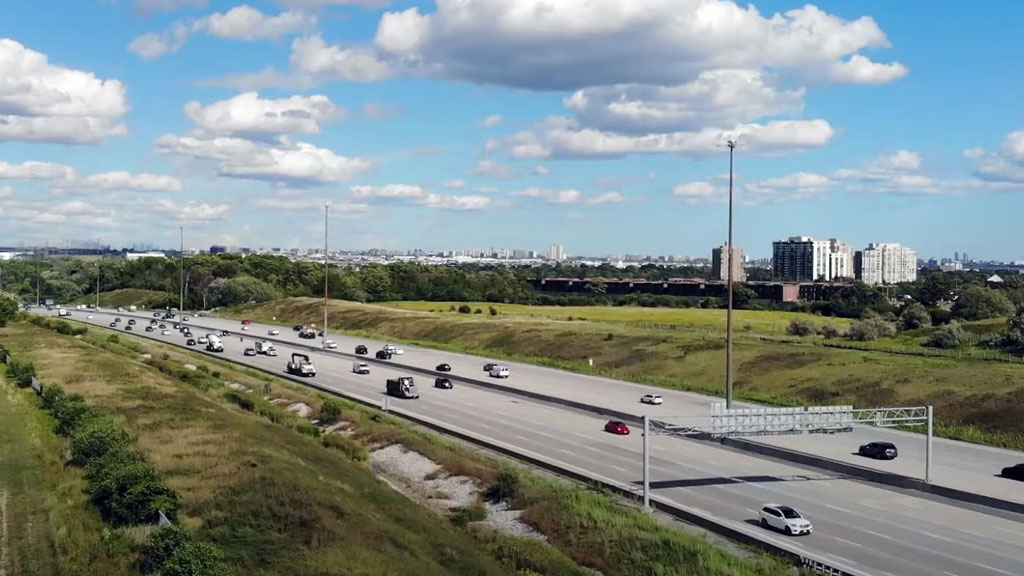Transport Futures founder Martin Collier has announced the learning program is returning with its first major presentation since before the pandemic, a seven-part webinar series exploring how governments are planning highways in the 21st century.
Part one of the series, billed as Expanding Highways: Opportunities and Challenges in a COVID-altered world, will take place Feb. 9.
The session will feature five presenters discussing the pros and cons of increasing the capacity of highway networks by building new roads or expanding existing ones, combined with transportation demand management, intelligent transportation systems and public transit. Each of the webinars will be three hours long.
The first Transport Futures session was held 15 years ago but many core problems remain, Collier said.
“There’s still the problem of how you finance the transportation system given population growth and market forces, to provide people a way to get from home to work,” said Collier.
“And whether that’s transit, or roads, or biking, or even walking. How do we build infrastructure and design infrastructure so that it’s multimodal?”
Collier, the director of Healthy Transport Consulting, said at the time Transport Futures was launched Metrolinx was publishing its Big Move initiative, but there was little discussion going on among experts, government, business, stakeholders, NGOs and the academic community.
“I was interested in transportation demand management,” said Collier. “Nobody was having a conversation that brought all those sectors together.”
The speakers Collier has brought in from around the world to over two dozen learning events have introduced different perspectives and given outsider insights on Canadian transportation issues, he said, and that will continue with the new series.
Presenters for the Feb. 9 event include Tija Dirks of the Ontario Ministry of Transportation; Andrew Price of Jacobs UK; Ricardo Sánchez-Gomez of Cintra US; Elizabeth Deakin of the University of California, Berkeley; and Michael Chiu of MSC Consulting.
“U.S. people always say, ‘you’re actually cutting your revenues, you’re taking tolls off the highway for the 412 and the 418, rebating the license plate sticker renewal fees?’ They go, ‘how are you funding the system?’
“So that discussion, I don’t think, has changed.”
Collier admitted in his decades as a consultant his philosophy on transportation has evolved. In the ‘90s, he said, he thought everyone should give up their cars and start to bicycle.
“Now I say, why? Everybody should have a choice on how they get around.
“But if we take transit, we have to pay for transit, we pay the transit fare, but if we drive, we also have to pay for that and then those revenues should be earmarked to the transportation system.”
The overarching purpose of the series is to increase awareness of transportation issues so that professionals and citizens can have more informed conversations, Collier said.
“Understanding, that is one of my big goals because I think in general discussions, when I talk to people about transportation, the first thing they think of is transit. They’re not thinking about the roads and the highways.”
Climate will be an important focus of every presentation, Collier said.
The other themes will be: Optimizing Highways: Enhancing Existing Networks without Expansions, Feb. 23; Replacing Highways: A Different Approach to Transportation Planning, March 9; Highway Funding: Procurement and Financial Structures in the Current Market, March 23; Highway Communications: Separating Economic, Environmental and Social Facts from Fiction, April 5; Highway Construction and Operations: Traditions and Innovations, April 20; and Highway Stakeholders: Diverse Perspectives on the Future of Highways, May 4.
The Daily Commercial News is a media sponsor of the series.









Recent Comments
comments for this post are closed